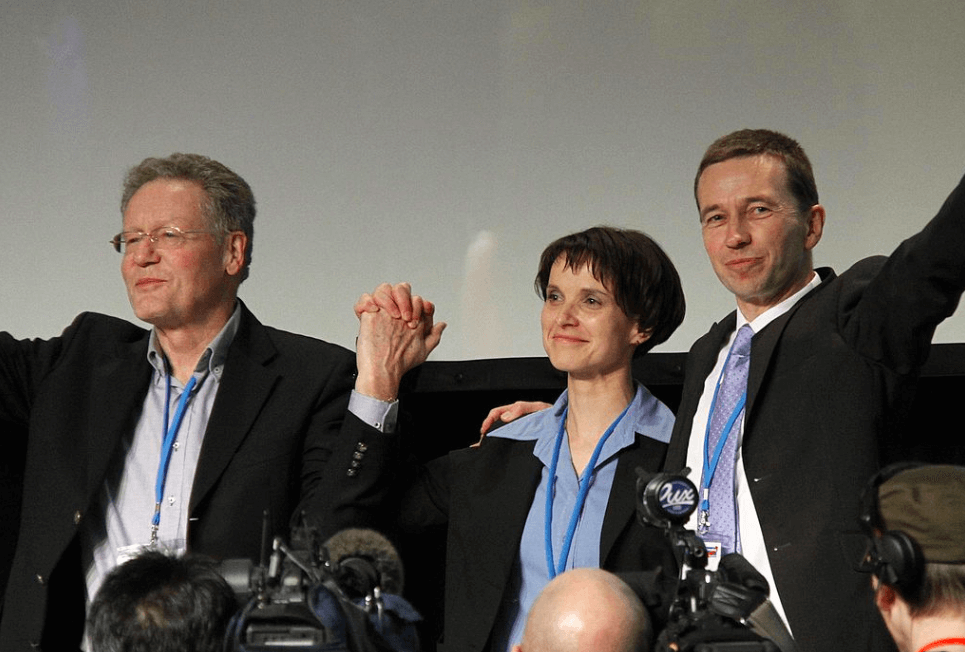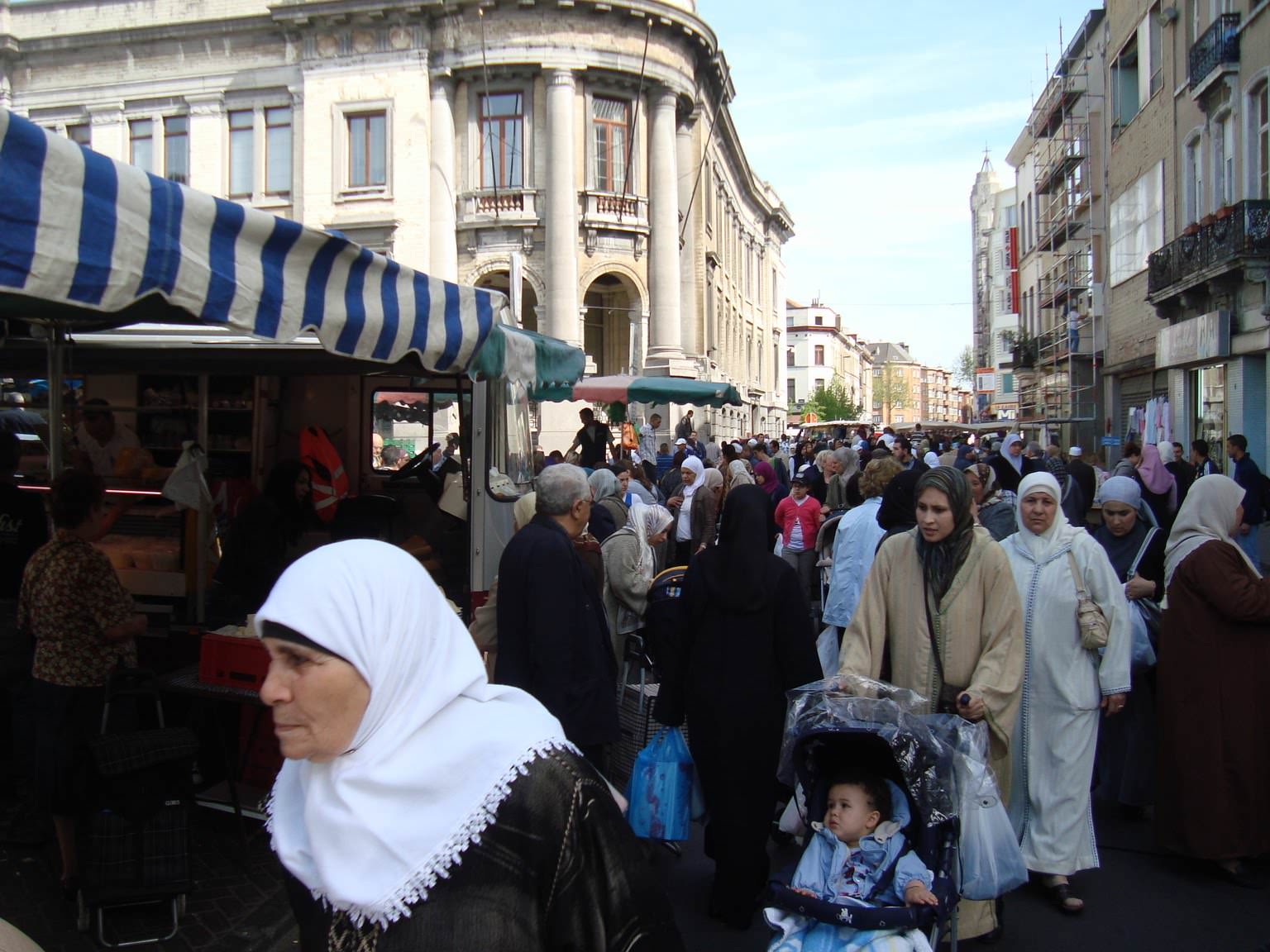Top Stories
Islam Has Become Toxic in the West
The kernel of an explanation lies in the fact that the majority think that Islam is incompatible with Western democracy and the Western way of life.

On 20th September 2015, Republican contender Dr Ben Carson averred in an interview with NBC that Islam is not consistent with the US constitution and “I would not advocate that we put a Muslim in charge of this nation. I absolutely would not agree with that.” It would have been interesting to know of Carson’s reasoning. Moreover, we might have expected what may itself be an unconstitutional stance to have damaged his campaign. But quite the reverse happened. Five weeks later, a CBS/New York Times poll showed that he had taken the lead from Donald Trump to become the Republican frontrunner.
Perhaps Trump and his team drew an important lesson from this, for on December 7th 2015, in the aftermath of Islamist terror attacks in Paris and San Bernardino, Trump made a forthright pronouncement in which he called for “a total and complete shutdown of Muslims entering the United States.” This boosted his ratings so that by December 21st, according to a CNN/ORC poll, he was once again in the lead; a lead he would not relinquish. It was unmistakeable that a hard line on Islam was very popular among sections of the American population. Indeed, a YouGov poll in December 2015 found that 58 per cent of Americans had an “unfavourable” opinion of Islam; by contrast only 17 per cent had a “favourable” opinion.
The proposed ban was initially a minority position. A Wall Street Journal/NBC poll on December 9th 2015 showed that 25 per cent of the population supported it whilst 57 per cent opposed it (although a YouGov poll at the same time found 45 per cent in support and 41 per cent who opposed). But over the course of the following year, increasing numbers of Americans said they agreed with Trump. By March 2016, YouGov found 51 per cent in support, and 40 per cent opposed; in June 2016, Reuters found 47 per cent for each position, while in the same month Morning Consult showed 48 per cent in support and 40 per cent opposed. The fact that about half of Americans were in support of such an extreme, and possibly unconstitutional, policy leads to the stark conclusion that aspects of Islam are felt to be deeply troubling, and not just confined to perceived terror threats from adherents to the faith.
The situation in Europe is little different – in fact, if anything, Europeans are rather more negatively inclined towards Islam. This is highlighted by the findings of an extensive survey conducted in 10 European countries between December 2016 and January 2017 by the Chatham House think tank (the countries are Austria, Belgium, France, Germany, Greece, Hungary, Italy, Poland, Spain, and United Kingdom). The survey was based on the statement: ‘All further migration from mainly Muslim countries should be stopped.’ Overall, across all 10 countries, an average of 55 per cent agreed that all further migration from mainly Muslim countries should be discontinued, 25 per cent neither agreed nor disagreed, and 20 per cent disagreed. In all but two, there was an absolute majority that agreed, while in no country did the percentage that disagreed surpass 32 per cent.
These findings add to the growing body of evidence that Islam and its adherents have become toxic to a large swathe of the population in the West. The hitherto default position of Islamists and their apologists has been to argue that Westerners are ignorant of the faith and what drives hostility towards Muslim beliefs and practices is a manifestation of “Islamophobia” and racism. But these have been little more than “guilt-tripping” tactics which have increasingly become ineffective. This is attested by the rising popularity of political parties that have an overtly anti-Islam agenda. Thus, in the Netherlands, the PVV [Freedom Party] came second in the general election on March 15th – yet it has the most extreme position of any leading party in the Western world in that it calls for the banning of all Islamic symbols, mosques, and the Koran from the country.
In France, the Front National’s presidential candidate Marine Le Pen is also leading in the polls and may yet register a surprise victory in the second round of elections on 7th May. Her anti-immigration stance is firmly focused on Muslims and she proposes to “expel foreigners who preach hatred on our soil” and to strip dual-nationality Muslims with extremist views of their French citizenship. But the Republican candidate Francois Fillon has also adopted a similarly tough stance on Islam with his description of radical Islam as “totalitarianism like the Nazis.” Catholics, Protestants, and Jews “don’t denounce the values of the Republic,” he said, indicating that was not the case with Islam.
Austria’s Freedom Party (FPO) has intensified its attacks on Islam, calling for a law banning “fascistic Islam” and Muslim symbols, comparable to an existing law banning Nazi symbols, saying Islam could wipe out European society. In January 2017, its leader, Heinz Christian Strache asserted: “Let us put an end to this policy of Islamisation … otherwise we Austrians, we Europeans will come to an abrupt end.” The FPO is currently leading in the polls and its candidate Norbert Hofer was only narrowly defeated in the presidential elections in December 2016.
Neighbouring Switzerland has also developed a strong antipathy towards Islam as evidenced by a major survey in November 2016. Asked whether Islam should be granted the same official status as Christianity and Judaism, 61 per cent of 15,617 respondents said “no” or “probably no” in what the Swiss News Agency reports was a representative survey carried out by the Tamedia publishing house. An almost identical percentage (62 per cent) said there was no place in Switzerland for Islam.
In Germany, the Alternative fuer Deutschland (AfD), formed just 3 years ago, is now the third largest party. A key factor for this sudden rise has been its unremitting opposition to Angela Merkel’s ‘open-door policy’ towards migrants and refugees, the overwhelming majority of whom are Muslim. In May 2016, it adopted an explicitly anti-Islam policy which entailed a ban on minarets, the call to prayer, and the full-face veil, stipulating that Islam was “not part of Germany.”

In Denmark, a survey in July 2016 asked 1,045 adults whether they agreed or disagreed with the statement “Denmark, together with the rest of the Western world, is at war with the religion of Islam and not just radicalised Muslims.” 33 per cent agreed, an astonishingly high percentage for such an extreme statement, while 56 per cent disagreed, and 11 per cent said they did not know. The leader of the Danish People’s Party, Martin Henriksen, campaigns to “fight Islam and this fanatical religion’s influence on the Danish society” and has described Islam as a “terrorist organisation.” In Sweden, a country like Germany with a hitherto open-door policy towards migrants, the anti-immigrant anti-Islam Sweden Democrats is growing in popularity and may come first in the next general election.
Unlike in Western Europe, Central Europe has parties strongly hostile to Islam that are already in power. In April 2016, Hungarian Prime Minister and leader of the Fidesz – Hungarian Civic Alliance, Viktor Orban, announced “We have the right to choose whom we wish to live together with and whom we do not wish to live together with. To be clear and unequivocal, I can say that Islamisation is constitutionally banned in Hungary.” In a similar manner, the Prime Minister of Slovakia, Robert Fico, of the leftist-nationalist Smer-Social Democracy Party in the midst of the general election campaign of March 2016 made the promise “I can tell you we will never – under a quota system – bring one single Muslim to Slovakia. And we will never – not even voluntarily – create a self-contained Muslim community, because it would represent a serious security risk.” Later in the year, like so many European leaders and citizens, he made the familiar refrain “Islam has no place” in the country. In Poland, in 2016, Jaroslaw Kaczynski, leading member of the governing Law and Justice Party, warned that accepting Muslim refugees would “threaten Poland’s security,” while Zbigniew Ziobro, the country’s justice minister, has said the ruling party is the only defence against “Islamic districts in Poland.”
Such striking, even disturbing, findings should be an eye-opener to the powers-that-be and civil society at large in the West. Yet, much of the political establishment, the mainstream media, and academia have been distinctly reluctant to seriously address this profoundly important issue. Indeed, their default position is that of the minority that is favourable to, or not unduly concerned by, Islam’s role in the West. So how to explain what can accurately be described as a ubiquitous visceral hostility to Islam and Muslims?
The kernel of an explanation lies in the fact that the majority think that Islam is incompatible with Western democracy and the Western way of life. This judgement is based upon observation of the many millions of Muslims who have settled in North America and Europe in recent decades. This judgement is coupled with the mass media and the internet showing the reality of Muslim countries across the globe; a reality hardly appealing to the majority of Westerners. Indeed, a seldom remarked fact is the magnetic appeal of the secular West to Muslim migrants, whose strong religious identity might be expected to encourage their migration to other Muslim countries.
Crucial insights are gleaned from Britain, the country with the longest experience of Muslim settlers, the majority of whom came from its former colonies. A Populus opinion poll in 2011 – considered the largest survey into identity and extremism in the UK – found that 52 per cent of respondents agreed with the proposition that ‘Muslims create problems in the UK’ (a far higher percentage than for other religious groups). More clarity is obtained from the findings of two opinion polls conducted in 2015 (by Survation and YouGov): both found that only 22 per cent of the population think the values of Islam are compatible with the values of British society; by contrast, in both polls more than half thought they are not compatible.

In Germany, a survey by the Bertelsmann Foundation in January 2015 found that 57 per cent of Germans considered Islam “very much” or “somewhat” of a threat and that 61 per cent believe that Islam is “incompatible with the Western world.” In France, an IFOP survey in 2016 found that 47 per cent of French people felt that the Muslim community poses a “threat” to national identity and almost two-thirds believe that Islam had become too “influential and visible.” These findings are entirely consistent with the centrality of secularism in France’s body-politic. Hence, in the three Western European countries with the largest Muslim populations, attitudes towards Islam are decisively negative.
One argument invoked to explain such views is that after 9/11 and the wars on Afghanistan and Iraq, Muslims in the West were unfairly conflated with acts of terror, and targeted for their legitimate grievances against Western interventions in Muslim countries. This is not at all convincing as many non-Muslims – invariably the majority – also opposed these wars, so the recourse to such reasoning amounted to the shielding of Muslims from critiques and criticisms of their faith.
Importantly, the reality of Islam in the West was arousing concern before 9/11. For example, an extensive survey by Paul Sniderman and Louk Hagendoorn as far back as 1998 on the views of Dutch people in regard to Muslim residents in the Netherlands showed that over half the Dutch population thought that “Western European and Muslim ways of life are irreconcilable.” More specifically, “nine out of every ten agree that Muslim men in the Netherlands dominate their women … Three out of every four Dutch agree that Muslims in the Netherlands raise their children in an authoritarian way.” Such views led to the title of their book: When Ways of Life Collide.

What is true, despite different policies, is that the outcome has been similar in European countries with large Muslim populations. Rather than a new respectful, tolerant, all-encompassing, and socially cohesive society envisaged by advocates of multiculturalism, with accommodation of separate cultural and religious demands especially by Muslims, instead we see segregation, ghettoisation, resentment, alienation, communal stress to the point of hostility, and the leading of “parallel lives.” It is this reality that the Central Europeans, with very low numbers of Muslim settlers, find so unappealing. There is now widespread consensus that multiculturalism has failed. Indeed, the fact is that many Muslim communities have become “psychically detached,” with few points of contact and little affinity or identity with mainstream Western society. This indubitably contributes to the perceived toxicity of Islam.
While the ensuring of security and prevention of terror attacks warrant the highest priority, in the longer term, the urgent task for policymakers is to undo the separatism and high levels of psychic detachment that have reached critical proportions. These are generating considerable unease across the Western world in regard to Islam and those who espouse the faith. Integration and assimilation are the sine qua non for this worrisome dynamic to be reversed.






